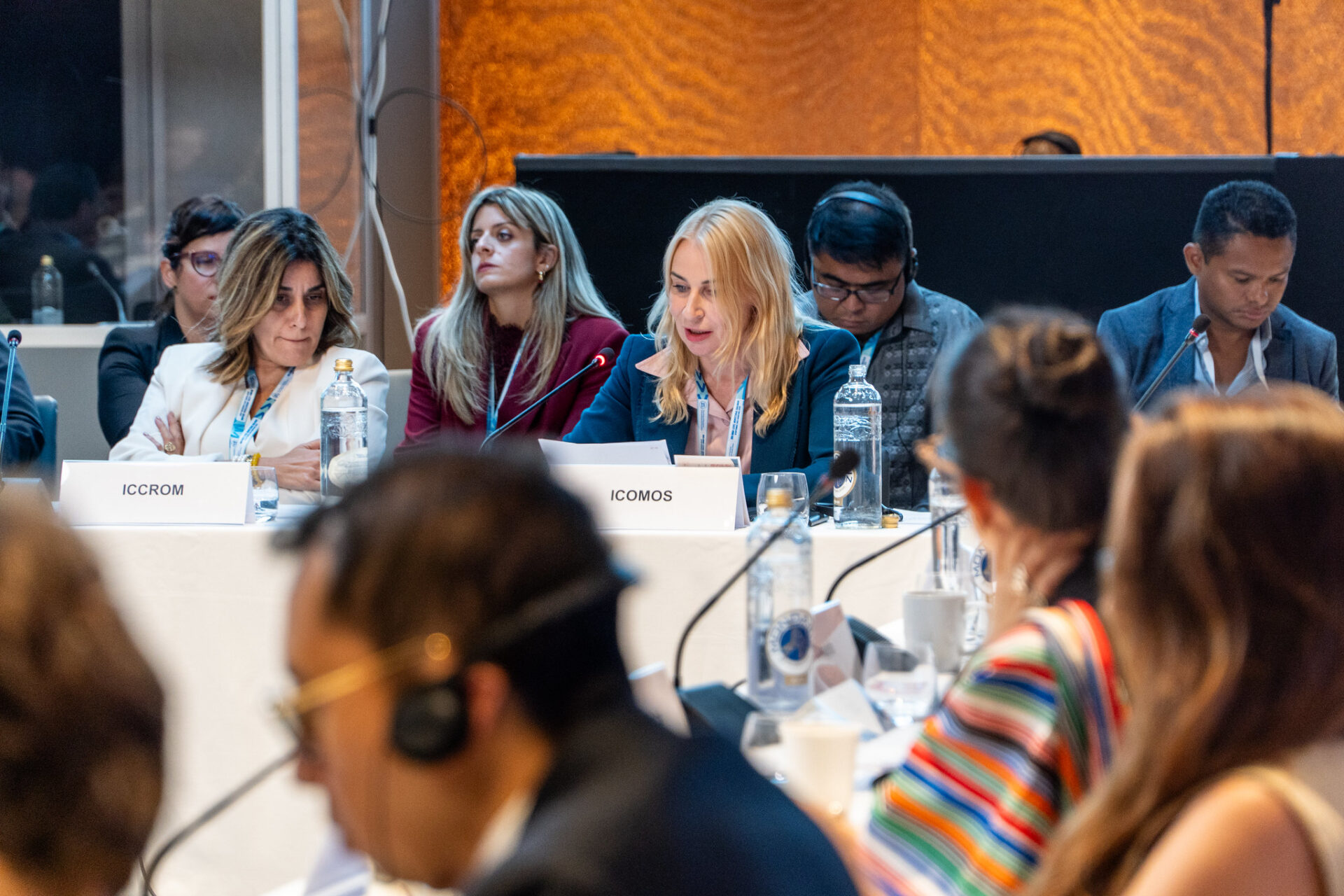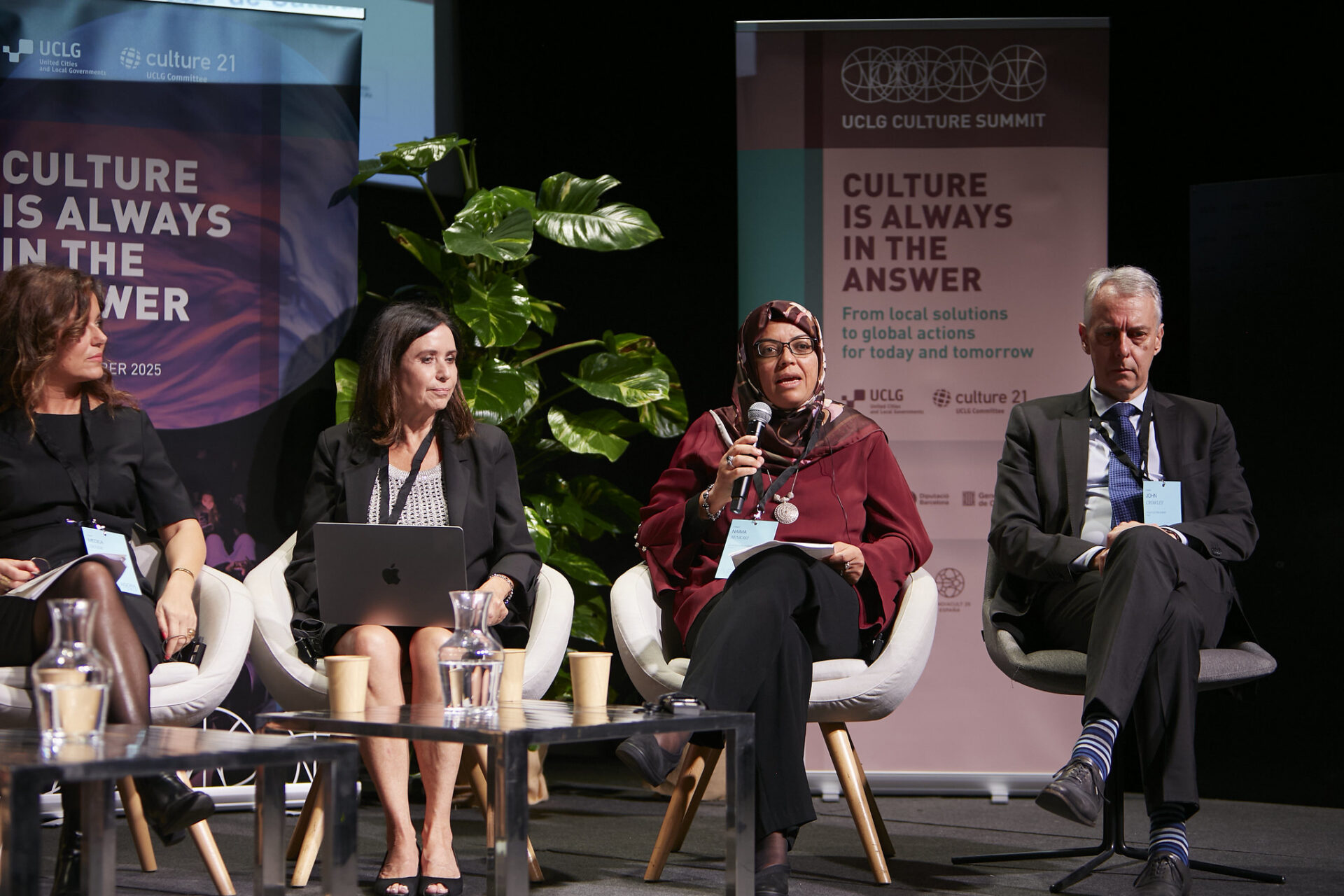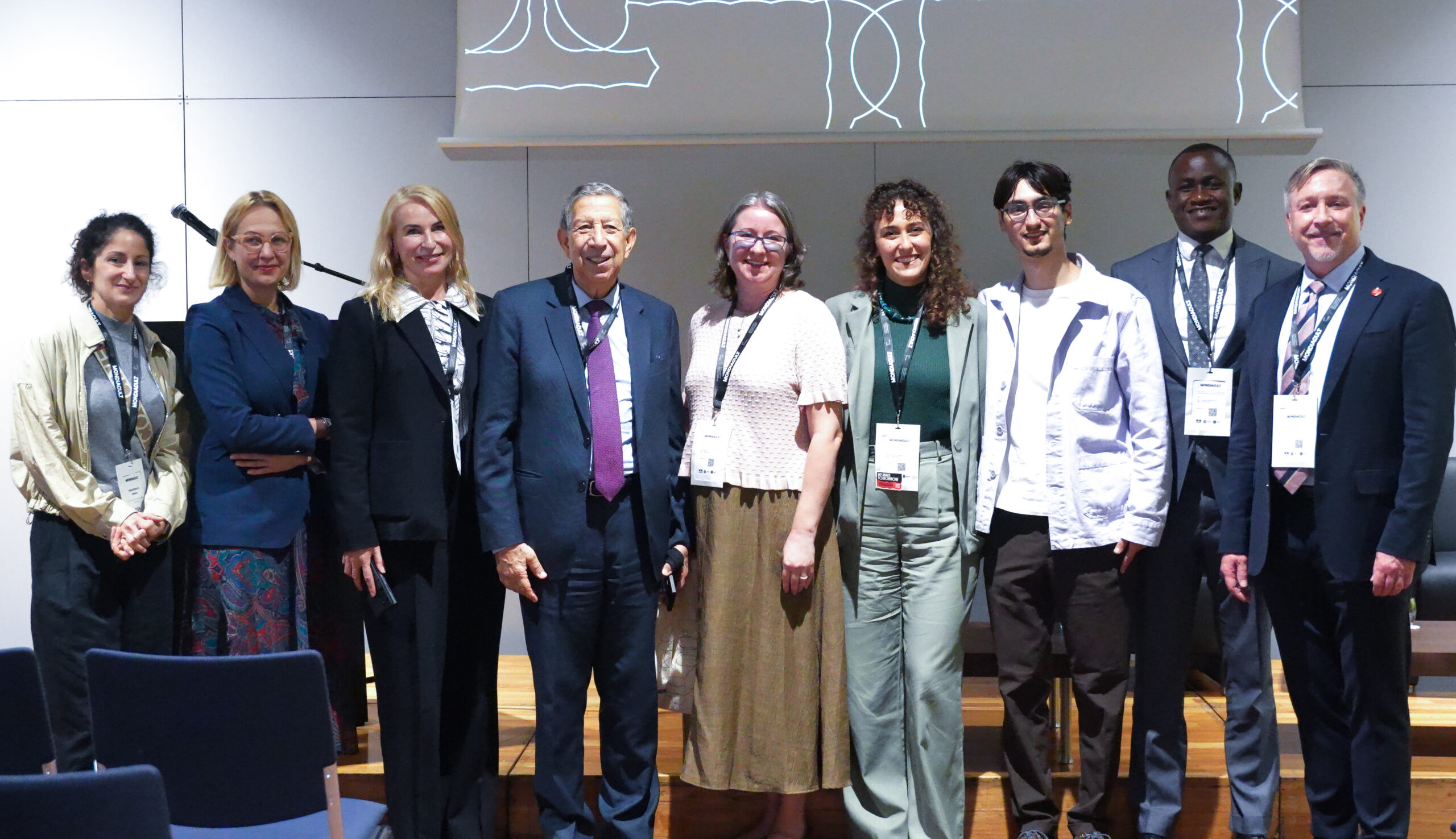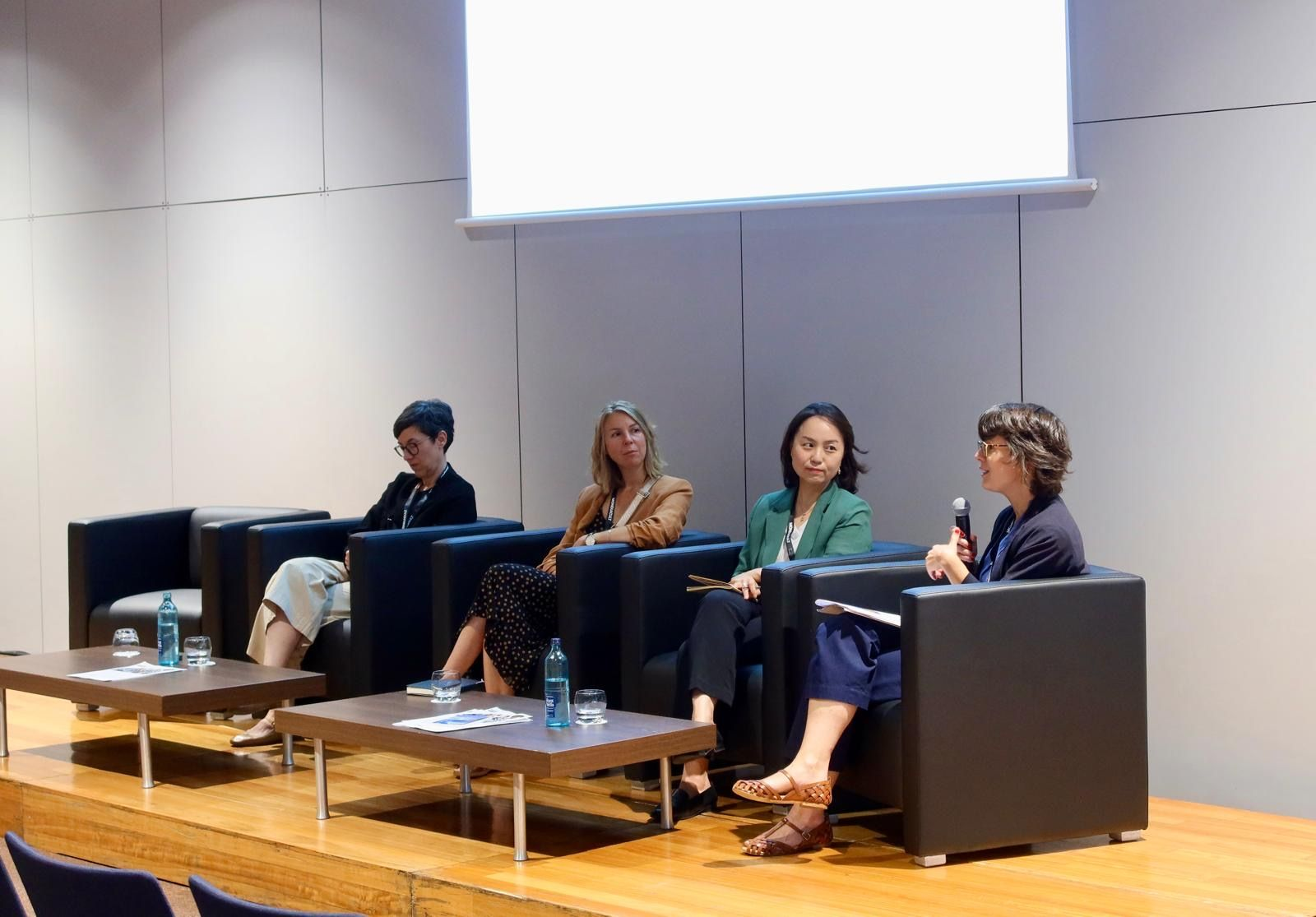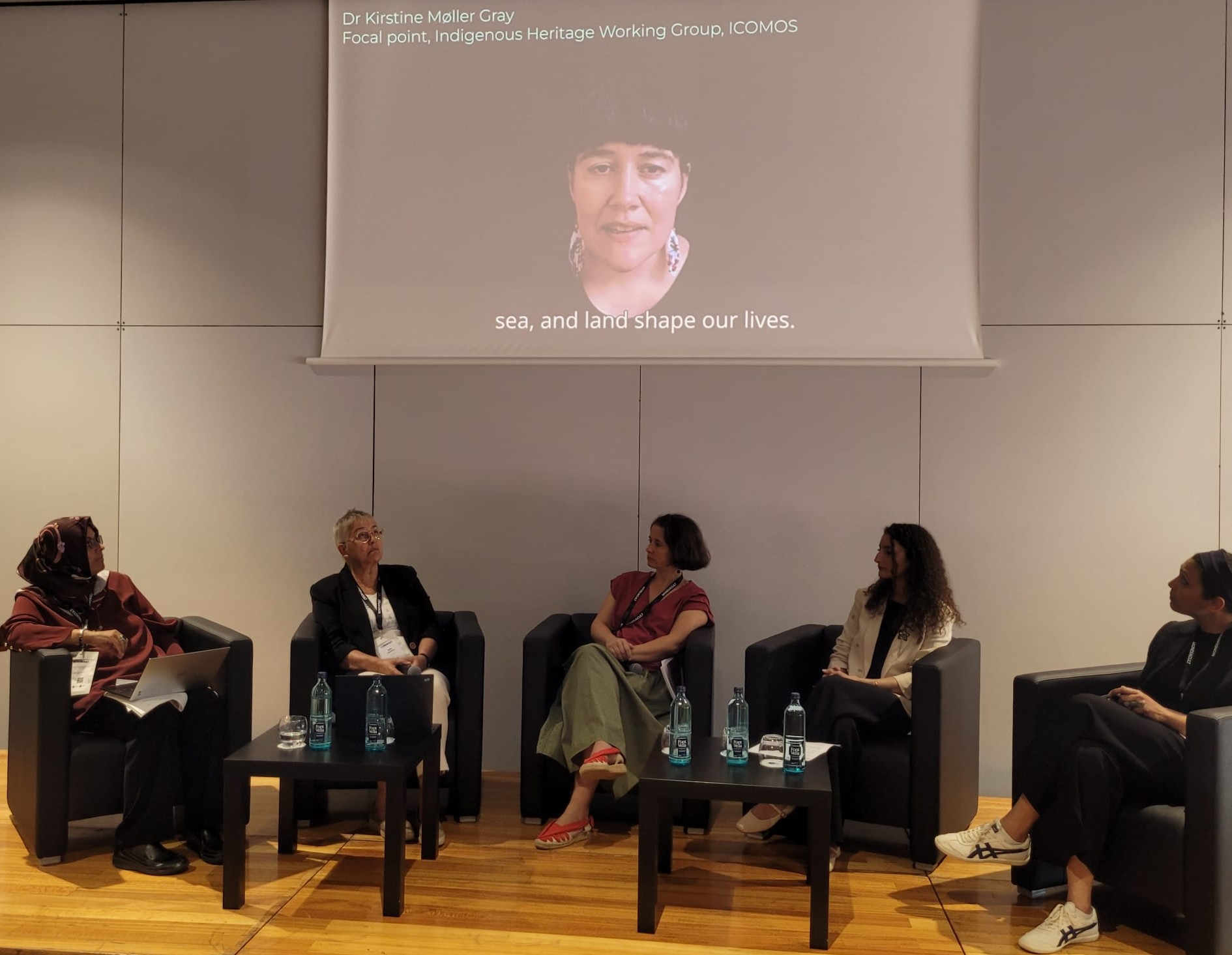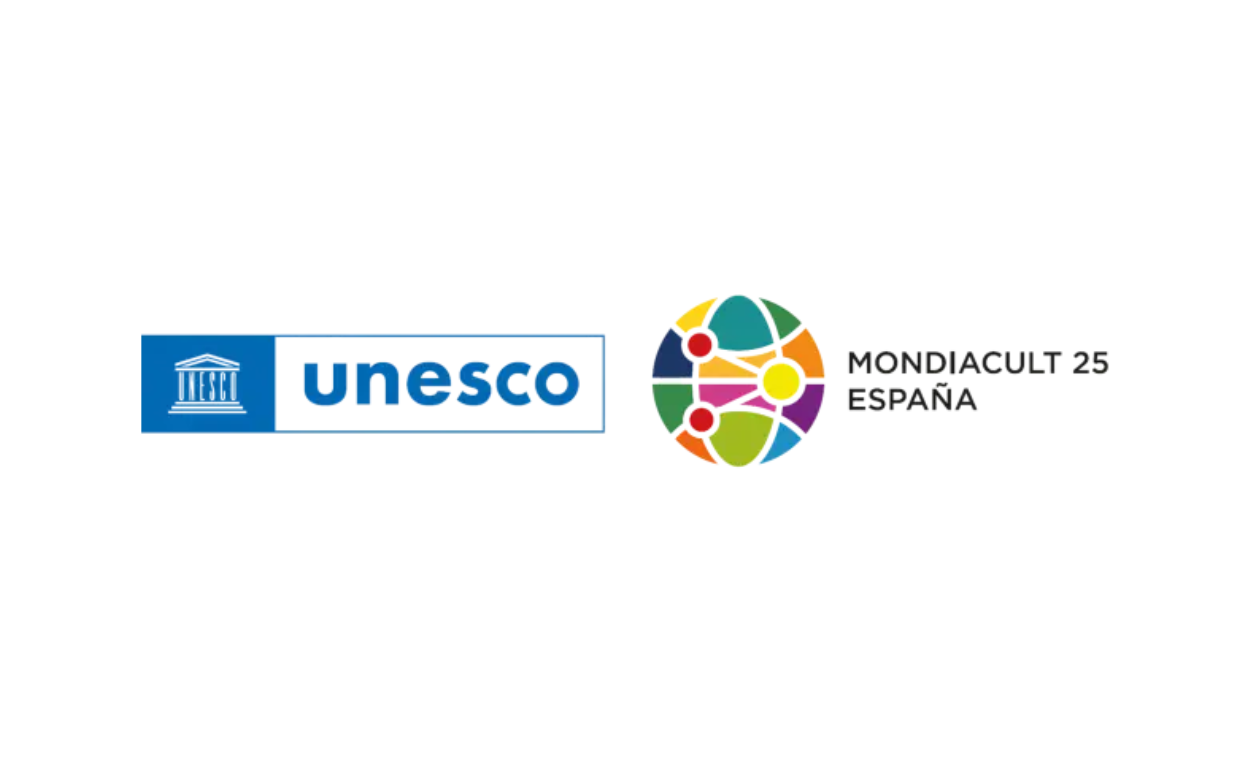ICOMOS at MONDIACULT 2025: Interconnections between Cultural Heritage, Indigenous Knowledge and Climate Action
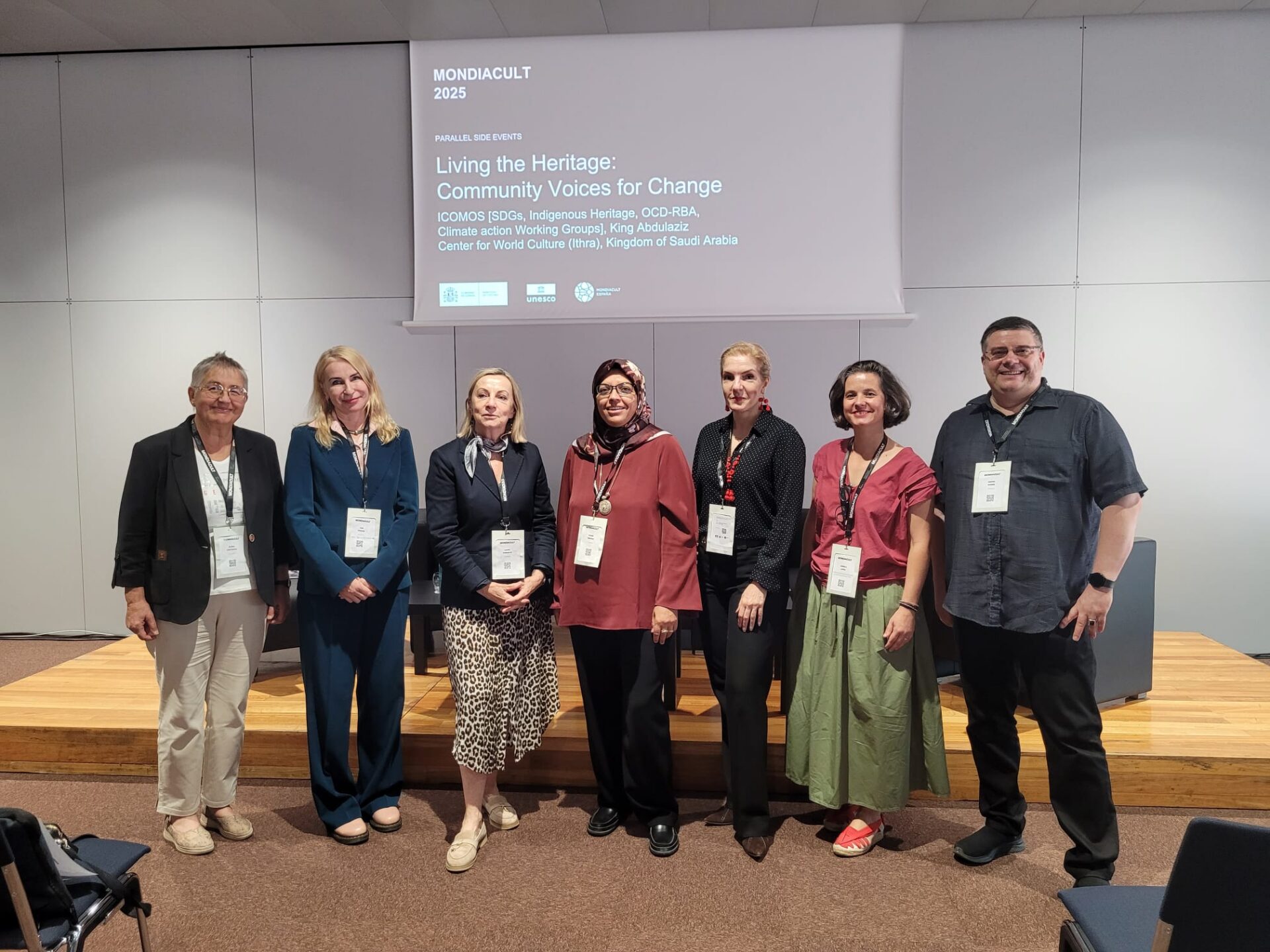
ICOMOS participated in the 2025 edition of MONDIACULT, UNESCO’s World Conference on Cultural Policies and Sustainable Development, from 29 september to 1 October. This year, the conference focused on the theme ‘Unleashing the power of culture to achieve sustainable development’. It gathered participants around the definition of a consensus to promote culture as an independent sustainable development goal within the next United Nations development strategy.
Ahead of MONDIACULT: Preliminary Dialogues and Meetings
ICOMOS has been actively engaged in the Mondiacult 2025 process through UNESCO-led regional consultations (November 2024 and February 2025) during which ICOMOS regional Vice Presidents, members of the ICOMOS Sustainable Development Working Group (SDGWG), and emerging professionals provided insights on key themes, including culture as a stand-alone goal, climate action, heritage in crises, indigenous knowledge, and the use of ethical technology.
From 26 to 28 september, the 6th UCLG Culture Summit brought together Culture2030goal campaign partners around the launch of a new proposal for integrating culture into the global sustainable development agenda titled ‘The Culture Goal: From Necessity to Reality’. During the Summit, Naima Benkari, Focal Point of the ICOMOS Sustainable Development Goals Working Group (SDGWG) highlighted the targets of ICOMOS within the proposal’s framework in the ‘Why We Need a Culture Goal Now’ session.
At a time when our environment is under strain and communities everywhere are tested, culture is not optional—it is what holds us together. It carries memory, anchors identity, and gives people the resilience to face challenges. It is also what allows societies to build bridges when other paths are blocked.
Since March 2025, ICOMOS President Teresa Patrício and ICOMOS Climate Action Working Group (CAWG) Focal Point Ave Paulus have contributed to UNESCO’s thematic paper ‘Culture and climate action: from margins to mainstream’ which was launched during the Third High-Level Ministerial of the Group of Friends of Culture-Based Climate Action, on 28 September. During this meeting, Ave Paulus shared insights on the event’s main outcome, the Barcelona Ministerial Declaration.
MONDIACULT Side Events: Culture and Nature, Indigenous Heritage and Sustainability, and the Importance of Living Heritage
Culture for Trust: Communities Facing Global Challenges – 30 September
This side event co-organised by ICOMOS CAWG involved the participation of Ave Paulus as well as Andrew Potts, representing ICOMOS and the Climate Heritage Network (CHN). Ave Paulus discussed climate change impacts on cultural heritage and the insights offered into climate adaptation by traditional knowledge systems. The purpose of the side event was to explore how, in times of crisis, culture, heritage, and artistic expression can serve as tools of fostering community empowerment, resilience, and adaptation.
There is an urgent need to take cultural rights and cultural impacts into consideration in responding to all aspects of climate change and climate action, prioritising the need for an urgent, effective and concerted global effort to prevent the cultural extinction of heritage and communities.
Towards a stronger connection between Culture and Nature: paving the way to a sustainable future – 30 September
On the same day, ICOMOS World Heritage Advisor Leticia Leitão participated in this side event on the relationships between Culture and Nature to introduce ICOMOS and give an overview of the Connecting Practice project.
Living Heritage / Living the Heritage: Community Voices for Rethinking Approaches and Shifting Systems – 1 October
Finally, ICOMOS SDGWG, ICOMOS CAWG, the ICOMOS Indigenous Heritage Working Group (IHWG) and the ICOMOS Rights-based Approach Working Group (OCA-RBA) organised a side event to discuss living heritage and craft knowledge as vital systems that promote economic, social, and cultural continuity. It aimed to explore the contexts which enable intergenerational knowledge transmission and innovation, demonstrating how living heritage influences and is influenced by built environments.
ICOMOS President Teresa Patrício opened the dialogue with remarks on the involvement of ICOMOS in international discussions about how cultural heritage can respond to global challenges. She insisted on the importance of cooporation between heritage professionals and local communities for mutual learning and support in heritage protection, conservation and management. The session, moderated by Naima Benkari, followed with presentations by ICOMOS SDGWG member Karla Nunes Penna and ICOMOS IHWG Focal Point Kirstine Møller Gray on the crucial aspect of cultural heritage for the survival and resilience of indigenous communities. ICOMOS Spain member Angela López Sabater then talked about vernacular architecture and its role in the revitalisation of rural life, and ICOMOS Bulgaria member Elena Dimitrova stressed the importance of intergenerational knowledge amidst change.
